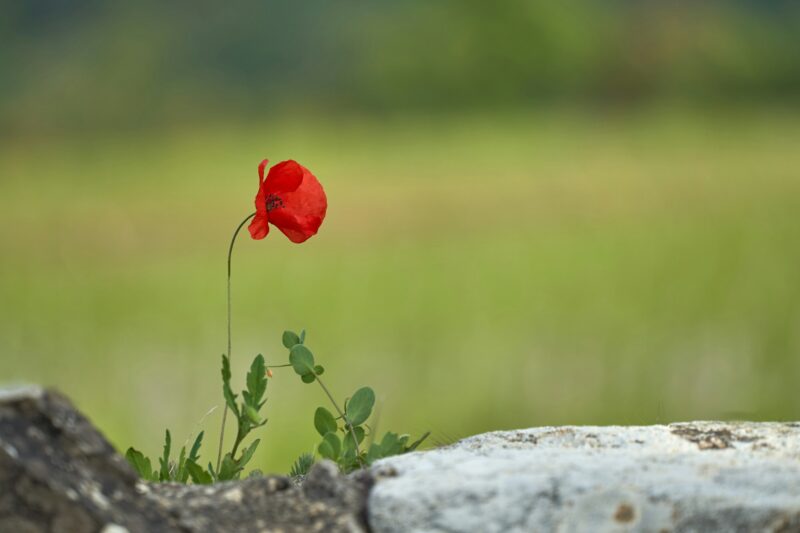 Photo credit: Wolfgang Hasselmann on Unsplash
Photo credit: Wolfgang Hasselmann on Unsplash
Have you ever wondered what you’ll regret most at the very end of life?
It’s rarely the mistakes you made; it’s the life you never fully lived, the words you never spoke, the moments you rushed through, the quiet joys you told yourself could wait.
That waiting makes for the greatest regret of all. But wait, this is not about dying; it’s an invitation to more meaningful living here and now.
When we begin to ask deeper questions like, Am I being true to myself or am I simply playing the roles expected of me?’ we start to find the deeper answers to living a meaningful life.
For years, I volunteered to sit beside people in the final days of their lives in hospice care, a fragile space where there is no need to pretend any longer. These dying people did not express regret about money, fame or success; rather, their regrets were about presence, love, courage, connection and joy that they’d postponed until it was too late.
They wished they had lived true to themselves. They wished they hadn’t worked so hard. They wished they’d spoken from their hearts more. They wished they’d stayed close to friends. And most of all, they wished they had allowed themselves to be happier.
To me, it was as if those who’d run out of time were passing the torch to the rest of us, reminding us how to live now before our someday turns into never.
Buddhism reveres the present moment as sacred because the past is already gone and the future is uncertain, but this moment contains the heartbeat of life. In this present moment, we have everything we need to begin again and to live fully.
The miracle of life is happening right here, in this quiet moment, now.
In the end, our souls yearn not for approval but for authenticity. The soul calls us to live in alignment with our heart’s quiet knowing. Living a life shaped by others’ expectations is to sacrifice the Presence that gives life meaning.
And there are so many opportunities for meaningful living each day: the moments shared with a child or pet, silence shared with a partner, a simple meal prepared with love.
In the Dhammapada, the Buddha reminds us there is no fire like passion, no crime like hatred, no sorrow like separation, no sickness like hunger, and no joy like the peace of contentment.
We were never meant to be human machines; we were meant to be aware, alive, and awake to the miracle of life, so we can be transformed by the process.
In our fear of being too different, we may choose to become too silent. We may hold back our affection, delay our apologies or suppress our truth. And yet, unspoken love can be the heaviest weight to carry.
Living authentically requires us to speak our truth from a place of clarity, compassion and courage.
It takes courage to say I love you or I forgive you or I need you. But by letting the moment pass, we may let the deeper gift of truth slip away.
Over time, this is often how friendships end – not through anger but by neglecting opportunities for shared laughter and vulnerability with someone who knew you when you were still becoming who you are today.
Spiritual friendship is really a journey shared with the people who walk beside us, whether for a season or a lifetime. These fellow travelers remind us of who we are; they hold up mirrors to reflect our process. When we lose these connections, we also lose parts of ourselves.
Of all the regrets I have heard expressed at the end of life, perhaps the most tragic of all is the quiet acknowledgement, I wish I’d allowed myself to be happier.
Because, you see, it’s not that happiness was unavailable, but that it was postponed: deferred until the house was paid off, or the children grown, or until there was more time or money, or the world more peaceful.
This deferral is based on a false assumption that happiness is a destination we’ll reach some day if we do all the right things, like a pot of gold at the foot of the rainbow.
In truth, happiness is not a destination but an attitude to cultivate. It is a presence found in stillness, in gratitude, and in letting go.
The regrets of those who pass are not meant to haunt us; they are lanterns to illuminate the path we can still walk, the doors we can still open and the life we can still live now.
The real measure of life is not found in how much we accomplish but in how deeply we live and how tenderly we love.
May you return to this stillness often and enjoy the beauty of each present moment.
©Copyright Ada Porat. This article may be freely distributed in whole or in part, provided there is no charge for it and this notice is attached. For more information, visit https://AdaPorat.com
